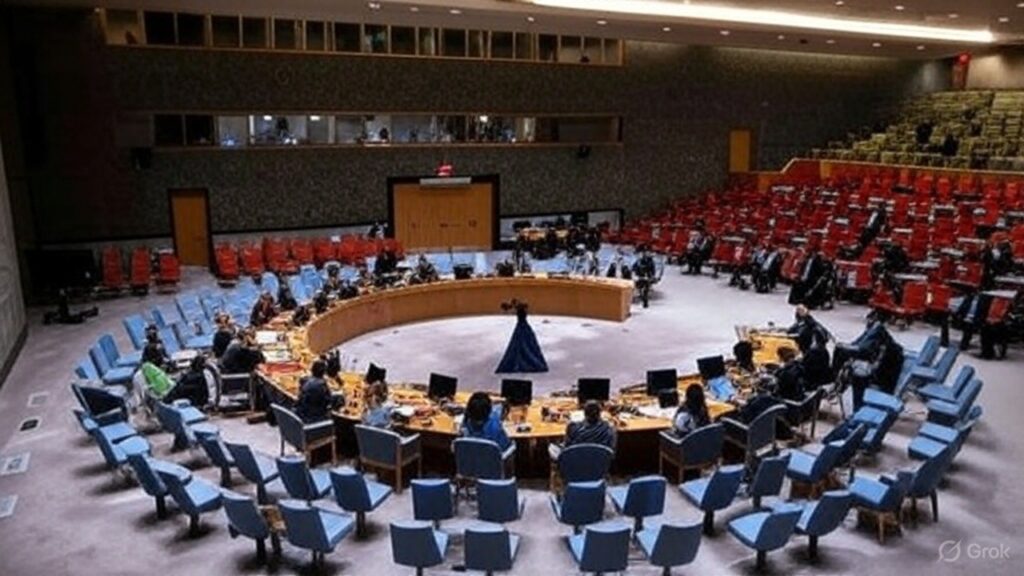The United Nations Security Council held a closed-door meeting on May 5, 2025, to address escalating tensions between India and Pakistan following the Pahalgam terror attack. Envoys emphasized dialogue and de-escalation, while the UN chief condemned the attack, urging restraint to avoid a military conflict.
By New Delhi Post Desk
UNSC Meeting Highlights
New Delhi: The United Nations Security Council (UNSC) convened a 90-minute closed-door session on May 5, 2025, to discuss rising hostilities between India and Pakistan after the April 22 Pahalgam terror attack, which killed 26 people, mostly tourists. Called at Pakistan’s request, the meeting saw envoys advocating for restraint and dialogue. Greece’s Permanent Representative and UNSC President for May, Evangelos Sekeris, described the session as “productive” and “helpful.” A Russian diplomat expressed hope for de-escalation, reflecting a broader call for calm.
UN Official Stresses Peaceful Resolution
Khaled Mohamed Khiari, Assistant Secretary-General for the Middle East, Asia, and the Pacific, noted the volatile situation between the two nations. He highlighted a consensus among UNSC members for “dialogue and peaceful resolution of the conflict,” underscoring the need to prevent further escalation. The council, however, did not issue an official statement, indicating a lack of unanimous agreement on specific actions.
UN Chief’s Condemnation and Call for Justice
Hours before the meeting, UN Secretary-General António Guterres condemned the Pahalgam attack, calling it an “awful” act against civilians. He stressed that “targeting civilians is unacceptable” and urged that those responsible be brought to justice through lawful means. Guterres emphasized the need for “maximum restraint,” warning that “a military solution is no solution,” as he continues outreach to both nations to prevent further conflict.
Pakistan’s Perspective and UNSC Rejection
Pakistan’s Permanent Representative, Asim Iftikhar Ahmad, aimed to highlight India’s “aggressive actions,” including the suspension of the Indus Waters Treaty, as a threat to regional security. However, posts on X indicate that UNSC members rejected Pakistan’s “false flag” narrative, criticized its missile tests and nuclear rhetoric, and questioned the involvement of Lashkar-e-Taiba (LeT) in the attack. Members reportedly urged Pakistan to resolve issues bilaterally with India.
India’s Stance and Diplomatic Measures
India has accused Pakistan of supporting terrorism, linking the attack to cross-border elements. In response, India suspended the Indus Waters Treaty, revoked visas for Pakistani nationals, and banned Pakistani flights from its airspace. Prime Minister Narendra Modi has vowed to pursue the perpetrators, signaling a firm stance. The UNSC’s call for dialogue aligns with international efforts to de-escalate, but tensions remain high as Pakistan claims a military strike by India is imminent.


